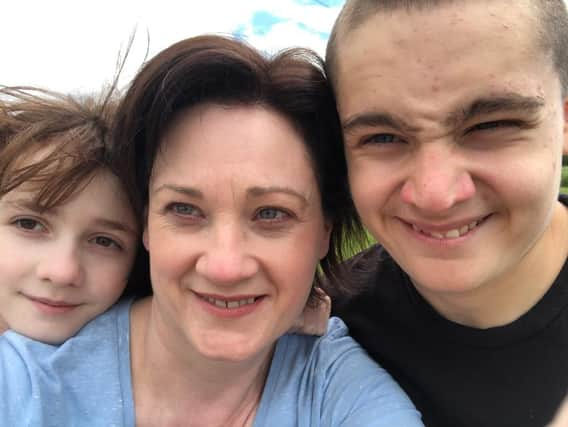Charity calls for Scotland's schools to provide 'personalised transition plan' for every autistic child returning to school in August


Huge changes to routine and daily life under lockdown and strict restrictions around social distancing have caused distress for many autistic children and put pressure on their families, often with limited support.
Scottish Government research says there are 6,500 autistic children across the country and that a third have a learning disability and, in many cases, also mental health difficulties.
Advertisement
Hide AdAdvertisement
Hide AdThe National Autistic Society Scotland (NAS) is now calling on schools to make sure that every autistic child has a personalised transition plan to aid their return.
This might include visits prior to school starting, more autism awareness for staff, sending out timetables or maps showing how the school might look, videos showing any changes to school rules or layouts, as well as having someone at school for parents to contact directly if required.
Nick Ward, director of NAS, said: “Many autistic children will have been out of school for over four months by the time the new term begins. Some have coped very well. Others however, have struggled under the strict restrictions and huge change to routine and we’ve heard from families under severe pressure with profound impacts on mental health and wellbeing.
"We know that change can be incredibly challenging for autistic people. It is important that transition back into school is handled sensitively and in a personalised way. Transitions are already hard for autistic children, often because of a lack of support or understanding about autism, and that’s why we’re calling on schools to make sure that each and every autistic child has a personalised plan with input from parents to make the transition as smooth as possible.
Advertisement
Hide AdAdvertisement
Hide Ad“We don’t feel that this is too much to ask in a system which should be focused on getting it right for every child.”
A NAS Scotland spokesperson said they are working with the Convention of Scottish Local Authorities (Cosla) to try and prioritise these personalised plans with councils and schools – but the fear is that many schools are still offering little to no support.
‘Anxious’ about return
Autistic people have difficulties with communication and social interaction at varying levels and can sometimes need more time to process information. They can also experience intense anxiety around unexplained changes in social situations.
Suzanne MacLeod, who lives in Dunfermline and has two children with autism, said the lockdown has been hugely challenging for her family and that she has had to stop her Open University course together with volunteering work to care for and educate them.
Advertisement
Hide AdAdvertisement
Hide AdShe said: “Callum (15) has quite significant needs and doesn’t understand the restrictions so it has been difficult to follow social distancing and I’m worried it will be very hard when he goes back to school as he has a compulsion to run up and touch or hug people.
“Emma (12) is very different and is quite quiet. She has enjoyed lockdown to some extent, particularly with us being together as a family. She is however, very anxious about returning to school and has really struggled with sleep because she is so worried.
“Both my children have very different needs and so their transition back into school will need to be done with lots of understanding and support. The school has been quite helpful in my case and have offered to talk things through but I worry not everyone out there will get the same level of help."
A Cosla spokesperson said: “Schools will be considering the impact of interrupted learning and transition planning for the return to school for all pupils.
"Working closely with the children and families they know well, schools will take an individualized approach and adapt existing plans as necessary depending on the child’s needs.”